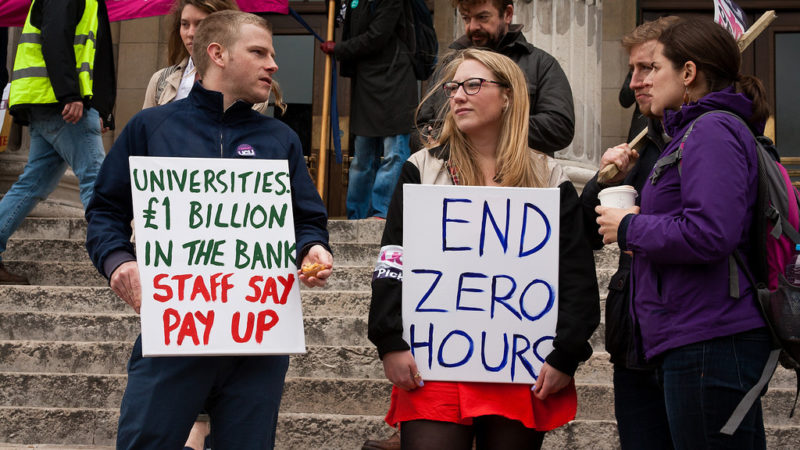It could pile pressure on the Tories to ban the controversial contracts.

New laws to ban most zero hour contracts will come into effect next year in Ireland.
The Employment (Miscellaneous Provisions) Bill has just one final stage left in the Dáil before it can become law, The Journal reports.
The Bill will ban zero hours contracts except in cases of ‘genuine’ casual labour and emergencies.
Under the plans, employers must give employees ‘five core terms of employment within five days of the commencement of employment’, with non-compliant employers open to prosecution.
Regina Doherty, Minister for Employment Affairs and Social Protection, said the bill was “one of the most significant changes to working conditions in a generation” and pledged it would come into force in the first week of March 2019, according to reports.
The minister said that the laws will “profoundly improve the security and predictability of working hours” for those on insecure contracts.
Doherty was quoted as saying:
“In a changing world, this reform ensures that the legal protections for all workers will match the conditions experienced by a modern workforce and make a real difference in the lives of thousands of workers.
There has been a long-standing campaign in the UK to scrap zero-hours contracts, with Labour and the Greens backing a ban.
Neil Foster, GMB Research and Policy Officer told Left Foot Forward:
“All over the world governments are taking action against insecure work yet the UK is lagging behind. The Conservatives are proposing workers should only have the right to request not having a zero hours contract, which is not much right at all.
“The Labour Party was very clear in the general election last year that they would ban zero hours contracts. There could be a general election in 2019 but we can’t rely on it.
“Either way the trade union movement has to redouble our efforts next year to expose the worst culprits. We have to tell the stories which show the damage zero and short-hours contracts can have on people’s lives, careers and relationships.
“That’s what they did in New Zealand before they won cross-party support for ending zero hours contracts and we can learn from these experiences as well as the very positive developments in Ireland.”
Recent figures show that of the 905,000 people on zero-hours contracts in the UK, a third are 16-24 years old.
TUC research shows that over 60 per cent of those on zero-hours contracts in the UK have been there for more than a year.
It’s often argued that zero-hours contracts offer flexibility for both the employer and the worker. But polling questions this claim: most zero-hour contract workers are not on them by choice, and would prefer a different form of employment.
The most common reason given (43 percent) for working on zero-hours contracts was that it was the only type of work available.
Two-thirds (66 per cent) of zero-hours contract workers would rather have a contract with guaranteed hours, according to the TUC analysis. Just one in four (25 per cent) say they prefer being on a zero-hours contract.
Josiah Mortimer is Editor of Left Foot Forward. Follow him on Twitter.
Left Foot Forward doesn't have the backing of big business or billionaires. We rely on the kind and generous support of ordinary people like you.
You can support hard-hitting journalism that holds the right to account, provides a forum for debate among progressives, and covers the stories the rest of the media ignore. Donate today.



